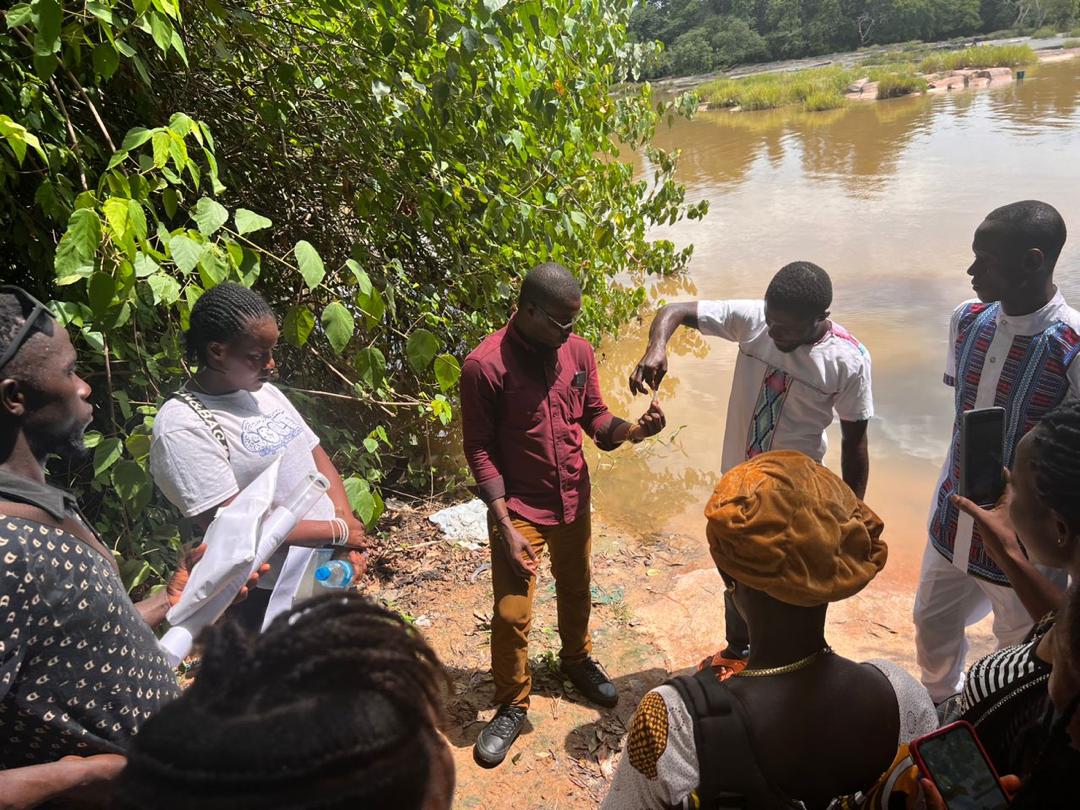Twenty-two new volunteers drawn from twelve communities along the Pampana/Taia River have been trained in basic water quality monitoring techniques in a bid to help save the said river, which is in a critical state now, due to harmful human activities like mining, deforestation, harmful farming and fishing practices, etc.
The three-day training which was implemented by the National Water Resources Management Agency, with support from the United Nations Environment Programme, GEMS Water, and Earthwatch Europe through the Neville Shulman Award, focused on collection, analysis and reporting of water data on the physical properties of the Taia/ Pampana River.
The volunteers were first given an orientation on how meaningful their contribution is to improving the state of the river, and were further taken through the process of gathering water samples and running physical tests based on what they saw; and recording these results in a special kind of logging system. The aim of the training is to bring out the observatory and analytical abilities of trainees to better collect and analyse water data, with the help of a special mobile app known as Survey123.
These results will inform the Agency’s water resource management database. This complements data gathered from automated water monitoring stations installed in major water bodies around the country. It also fills in the gap in situations where these stations could be down due to technical issues. At the end of the training, the volunteers became Citizen Scientists.
In this project, local communities within the Taia River Basin participate in water resources data collection and monitoring in the Taia River basin. This initiative helps gather valuable information throughout the year on the ecological and hydrological characteristics of the Taia River that supports efforts to manage and protect water resources in this basin.
The Director General of National Water Resources Management Agency, Junisa Pratick Bangalie Esq. said government and its partners appreciate the power behind community participation and ownership. He further said community participation in water resources management is so invaluable as it upholds the principles of integrated water resources management even in hard-to-reach areas.
Sunkarie Koroma of Liro Village said the training is a rare opportunity to contribute to something big and she is sure the benefits mean a big deal for her community. “Waterborne diseases are quite common in our community. If I can help make the water safer, I would have helped saved lives and contributed hugely to development in the community” Sunkarie said.
The citizen scientists had a practical session at a local stream, where they had a first-hand practical session experience with the sampling/data collection kit. The Handing over of mobile phones and data collection kits formed highlights of the event.

